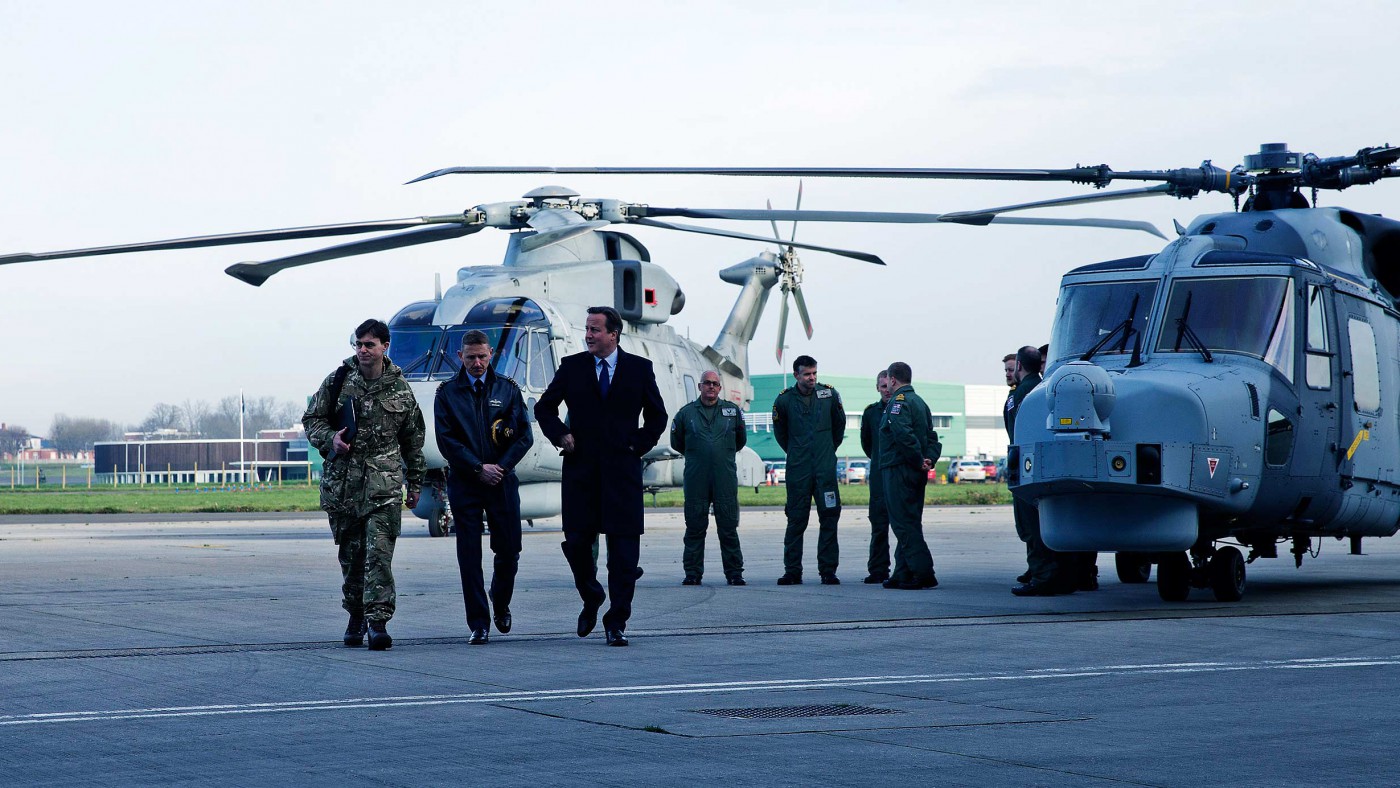The contrast between Labour leader Jeremy Corbyn and his Conservative counterpart could not have been stronger. In the House of Commons on Monday, the Prime Minister laid out his vision for how Great Britain would face an array of challenges in an increasingly dangerous world. As David Cameron outlined the new Strategic Defence and Security Review (SDSR), he projected a clear-cut understanding of the gravity and magnitude of the threats that Britain faced.
The PM announced the creation of two 5,000-strong “strike brigades,” to be in force by 2025, as well as the introduction of 13 new frigates, including 8 Type 26 warships. He also unveiled plans to replace Britain’s four ballistic missile submarines. Overall, Britain will invest an addition 12 billion pounds in equipment, in contrast to the 8 percent cuts in the last SDSR in 2010, forced by the perilous state of Britain’s finances, bequeathed by the last Labour government headed by Gordon Brown.
Britain will meet the 2 percent of GDP spending commitment pledged by all NATO member states, but actually met by just four countries. (In contrast, Germany spends only 1.2 percent of GDP on defence, and France just 1.5 percent). For a nation with truly global commitments, Britain should be spending significantly more than the minimum 2 percent on defence, while aggressively increasing the size of its armed forces. But Cameron’s announcement was a significant step in the right direction, in contrast to many nations in continental Europe who continue to rely on the American security umbrella without pulling their own weight. And it followed his robust statements over the weekend, vowing to defeat Islamist terrorism and the “poisonous ideology” that drives it.
In the wake of the Paris attacks the Conservative government looks determined and serious, with some concrete proposals for rebuilding British military power in the coming decade, and for combating ISIS. Last week Downing Street announced that MI5 and MI6 will be hiring 1,900 more spies to advance the global intelligence war against the Islamists. The government is also now committed to going ahead with a parliamentary vote seeking approval for air strikes against the Islamic State inside Syria, essential if Britain is to be seen to be playing a lead role in defeating the ISIS menace.
In such grave and dire circumstances following the barbaric slaying of at least 130 people in Paris at the hands of bloodthirsty terrorists who seek the destruction of the West, one would expect Her Majesty’s Opposition not only to be offering its full support for increases in both military and intelligence capabilities, but putting forward strong proposals of their own.
But if anyone was expecting Jeremy Corbyn to be showing even an ounce of leadership at a key moment in history, they would have been left sorely disappointed. The Labour leader’s performance in response to the SDSR was woefully poor, even by his own generally mediocre standards. Mr. Corbyn spoke as though the Paris massacre had barely taken place, with a great deal of pious waffling about climate change and food security, undoubtedly issues of pressing concern to the Labour Left. Unfortunately for Corbyn, no amount of government intervention on climate change will dismantle the vast Islamist terror networks crisscrossing Europe, or halt the savagery of ISIS on the streets of Paris, Brussels, Raqqa or Fallujah.
Jeremy Corbyn does not possess the gravitas or mettle of a prime minister in waiting. His style is more akin to that of a student union rabble rouser than that of a serious political leader who one day might be given the keys to Number 10. David Cameron should count his lucky stars that his nemesis in Parliament has the debating skills of a Junior Common Room vice president, combined with the courage of a fledgling Bambi.
One can only imagine what Mr. Corbyn would be like as Prime Minister. Perhaps a glimpse can already be seen across the Pond, with the presidency of Barack Obama. Like Corbyn, Obama is a big government, high tax politician with a distinctly left-wing outlook on economic issues, who, as Margaret Thatcher would say, enjoys spending other people’s money. On the international stage, like his Labour counterpart, Obama is strongly isolationist, preferring to rein in military might on the world stage, rather than project it. They share a love for multinational institutions such as the United Nations and the European Union, and are happy to surrender national sovereignty at the drop of a hat. Like Jeremy Corbyn, Barack Obama is fixated on the issue of climate change and other soft power issues. And, as is the case with Mr. Corbyn, Barack Obama is like a deer in the headlights in the face of ISIS, with no clear strategy to defeat the enemy at hand, and a point blank refusal to identify the radical Islamist nature of the enemy we face.
On both sides of the Atlantic the Left has run out of ideas, and has no real understanding of how to lead on the world stage. Both Jeremy Corbyn and Barack Obama embody the notion of leading from behind, at a time when the threats to the West and the free world could not be greater. The United States and Great Britain must be prepared to lead at a time of crisis, but the American and British Left lack the seriousness and resolve that is badly need to defeat our enemies, including ISIS. They are a throwback to the 1930s era of appeasement, stuck in a dangerous mindset that is hugely outdated, delusional in outlook, and stubbornly unwilling to accept the enormity of the threats we face today, and the sheer scale of the task that is at hand. It is an approach that undermines our security while allowing the enemies of freedom to grow in strength.


